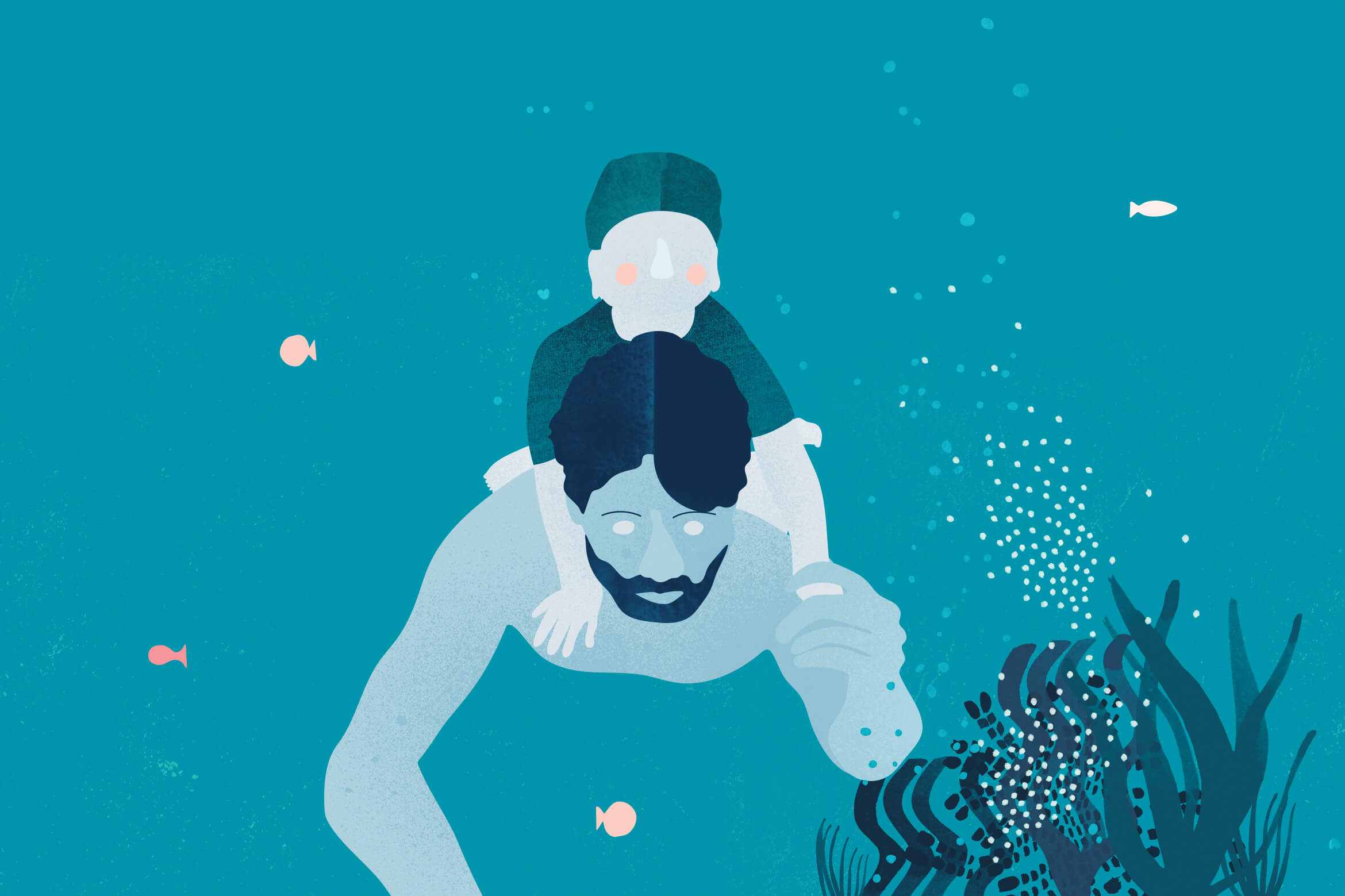I recently ran into an old friend of mine I hadn't seen in a long time. With two young kids, we got to chatting about when to start swimming lessons. Despite being a swimmer himself, he said "I've been told it's a waste of time getting them in the water until they're 4 or 5 years old."
It sort of shocked me to hear that the thinking from twenty or thirty years ago is still very much in our collective attitudes towards swimming today...
It's easy to forget that new ways of thinking about learning to swim don't always flow through to the public from a rite of passage that doesn't seem to have changed much from when we were kids ourselves.
If you've heard something similar, or are pondering when to start swimming lessons, the short answer is to start them as early as possible.
Why? There's too many upsides to ignore!
1. 80% Of brain development happens by the age of 3, and 90% by the age of 5.
From birth to age five, your child's brain is developing at it's most rapid rate – an astonishing million neural connections are made per second. These connections have a long term impact on a life, with positive connections leading to healthier and more successful lives.
Swimming helps your babies brain grow by creating a tactile environment that facilitates communication, feedback and modulation from one side of the brain to the other.
A study of 7000 children by Griffith University in Australia has found that children who swim are advanced in their mental and physical development, compared to their peers who don't swim.
2. Swimming helps develop motor skills, using the tactile, proprioception and vestibular senses.
Having your child touch, kick, move their arms, splash and glide through water activates sensory systems that don't easily get activated on land, helping kids to boost their brain development, their body awareness, balance, co-ordination, and attention.
The combination of movement in the water also enhances cognitive behaviour, reduces stress and improves blood flow.
Suddenly learning to swim before you can walk doesn't sound like a waste of time!
3. Safety.
This is the obvious one, but if you live on the coast, love the water or a good seaside holiday, exposing kids to water can't happen soon enough. It's a mistake to assume that kids aren't going to learn how to swim before the age of 4 or 5.
The value isn't in learning how to swim strokes, instead, it's about exposing them to water, so they become familiar with it. They're less likely to drown in a way, just by being exposed to an aquatic environment. They're going to understand water alot sooner.
In a structured environment they're taught to wait, and not to run when they see water. It's teaching them safety and survival skills.
4. Getting into the water with your child is an opportunity to bond over a fun new world together!
If you start swimming lessons early enough, you'll be a part of the lesson. You'll go from nervously holding them too tightly, to relaxed and confident with how to handle your child in the water.
When both of you are relaxed, the water will become an incredible playground the two of you can explore together, uninterrupted. The bonding experience with you as well as a good teacher will have a positive impact on their brain development and social skills.
The water will be a source of joy that you can confidently take with you to the beach or that warm seaside holiday you've been craving, too!
Why prioritise swimming over other sports?
There's so many reasons! Swimming is a foundational skill that develops all-over strength. It's low impact and helps kids with their co-ordination. There's no screens to distract, and it teaches kids to be alone with their thoughts, unlike a team sport. And because it's a difficult skill to master, it teaches perseverance and builds confidence.
AND, according to the research above, it makes you smarter! How amazing is that?!
Like anything else in life, it’s never too late to start.
Kieren Perkins didn't start swimming until he was 8, so don't panic if you've left it 'til later! The best thing you can do to reap the above benefits is to enrol in a good swim school.
A good swim school will:
- Have small classes
- Teach children buoyancy without the use of floatation aids
- Not rely on floatation aids to teach swimming
- Have teachers who are engaged in their classes
- Ensure you see some improvement over a term
- Have really clear achievements
- Have incentives for kids – some kind of reward system so they're being encouraged to achieve things
- Teaches survival skills, for example, what to do if they fall into the water
- Teaches a lot of independence in the water
- Teach progressions – a break-down of skills, rather than everything overwhelmingly all at once
- Have deep water where kids are unable to stand
- Have an ideal water temperature of 30°c – 31°c for younger children (not below 29°c, or above 33°c)
- Ideally have a Brauer System. If that's not feasible, go outdoors. Alternatively, seek out an indoor pool that doesn't reek of chlorine. If you can find the pool just by it's smell, that's not a good sign!
So when do you start swimming lessons?
It's never too early! We've seen programs that start from as little as six weeks. Our own water temperature at In The Deep is perfect for as young as four month olds. And what a beautiful bonding experience it'll be for you and your child, in our busy, distracting world.
Grab your swimmers and we'll sea you at the pool! Sasha x



No comments.